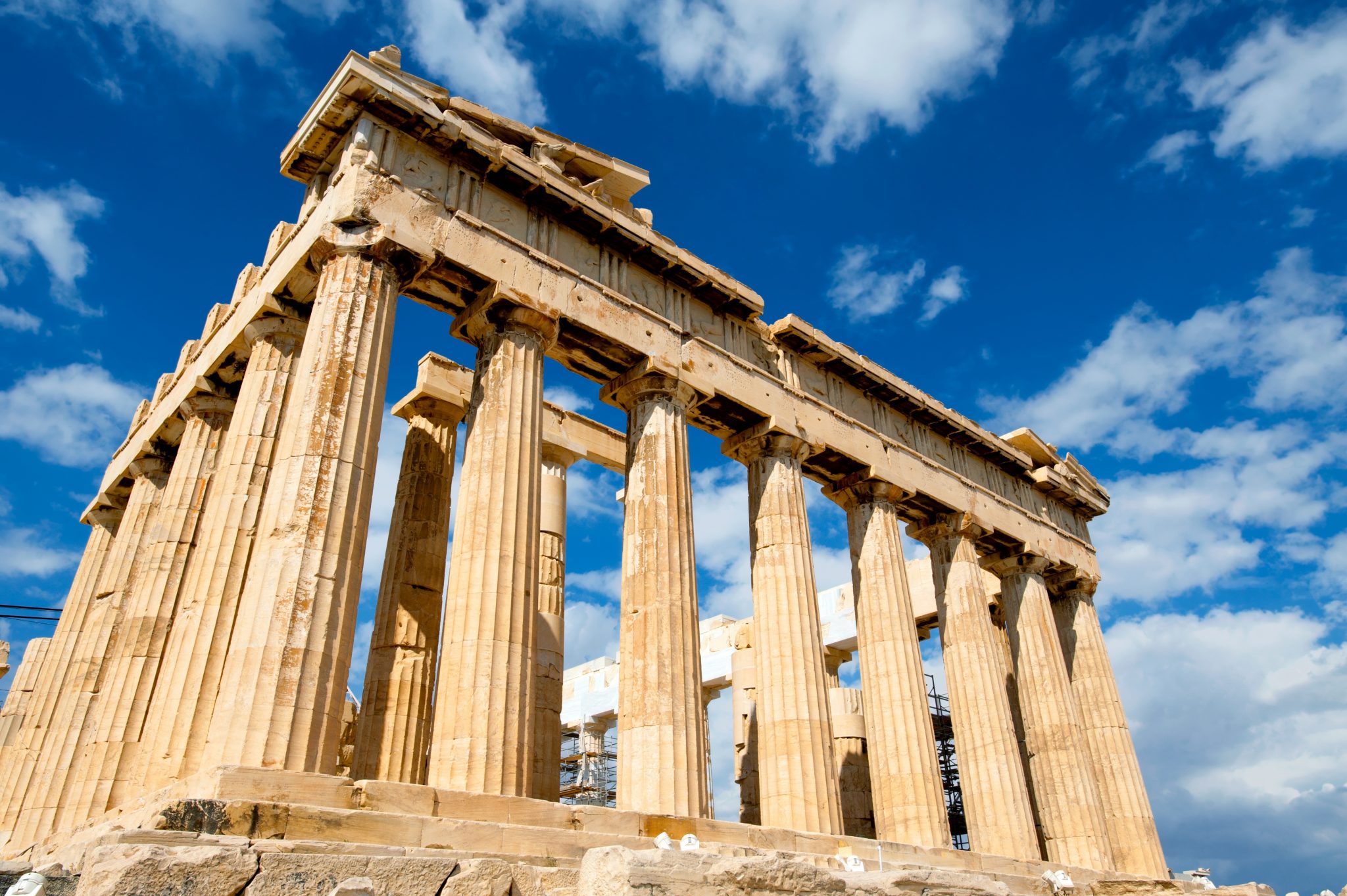In 2014 I retired after forty years of university teaching, first in England and latterly at Queen’s. My subject was – is — ‘ancient’ history, defined in almost all British and Irish universities as the Mediterranean-centred world of the Greeks and the Romans. All very long ago now. In the Greeks’ case (my speciality), several centuries B.C. ‘The past is a foreign country: they do things differently there’, says the narrator-protagonist Leo at the opening of The Go-Between. “Classical” Greece is thus foreign, and distant, twice over. But might it have lessons for us even so? Slugger has invited me to consider the question, so here – briefly — goes.
Where did ordinary men and women in one of the numerous city-states (poleis) of, say, fourth-century-B.C. Greece look to for guidance on how to live their personal and communal lives? Not, by and large, to philosophy. True, Greeks had invented it, but in this era only an elite with money and leisure had access to it.
Instead, two sources of moral authority stood out from the rest. One was law: the body of law(s) in force in any given polis. This was likely to derive, wholly or partly, from a wise law-giver in early times. The other was religion. Here is a glimpse of each.
LAW. Athens — untypical, in this and other ways — looked back to two law-givers. One was the shadowy Draco, the severity of whose laws and penalties still makes his name proverbial to this day. The other was the sage and poet Solon. In the early sixth century B.C. Athens was suffering from factional (nowadays we would say party) strife; what the Greeks called stasis. Solon was given powers of legislation and mediation to resolve it. Among the many laws credited to him, some of them correctly, the one I would mention here laid down that if or (more realistically) when Athens succumbed to stasis in future, no citizen was to stand aloof. Anyone who did so risked trial and, if convicted, loss of civic rights. Apathy, neutrality, lying low: not an option, for patriotic Athenians. The community’s well-being was everyone’s concern.
RELIGION. 99% of Greeks revered the gods. Plural. There were dozens of them, great and small, in this polytheistic world. Zeus was king of them all, but Apollo ran him a close second, because Apollo’s views were transmitted to mankind through his celebrated shrine and oracle at Delphi. There, Greeks and others could ask the god specific questions, and leave with an answer that might or might not be helpful. (Example: King Croesus of Lydia enquired whether he should attack the Persians. ‘If you do’, came the reply, ‘you will destroy a great realm’. So Croesus went ahead, to destroy his own.) But additionally, all visitors to Delphi encountered a wall-full of pithy wisdom. Inscribed maxims; almost 150 of them in all. Perhaps the most famous, and justly so, is ‘Know Yourself’. Equally worth our notice, though, is ‘Nothing To Excess’.
To pretend that ancient Greek society maps closely onto our own would be foolish. Yet the greatest of all Greek historians, Thucydides, believed that human nature does not change very much over the course of time. He was right. For individuals and communities alike, wise advice in one era can still reverberate in another.
David Whitehead MRIA Is Professor Emeritus of Ancient History At Queen’s University Belfast
This is a guest slot to give a platform for new writers either as a one off, or a prelude to becoming part of the regular Slugger team.
Discover more from Slugger O'Toole
Subscribe to get the latest posts to your email.
